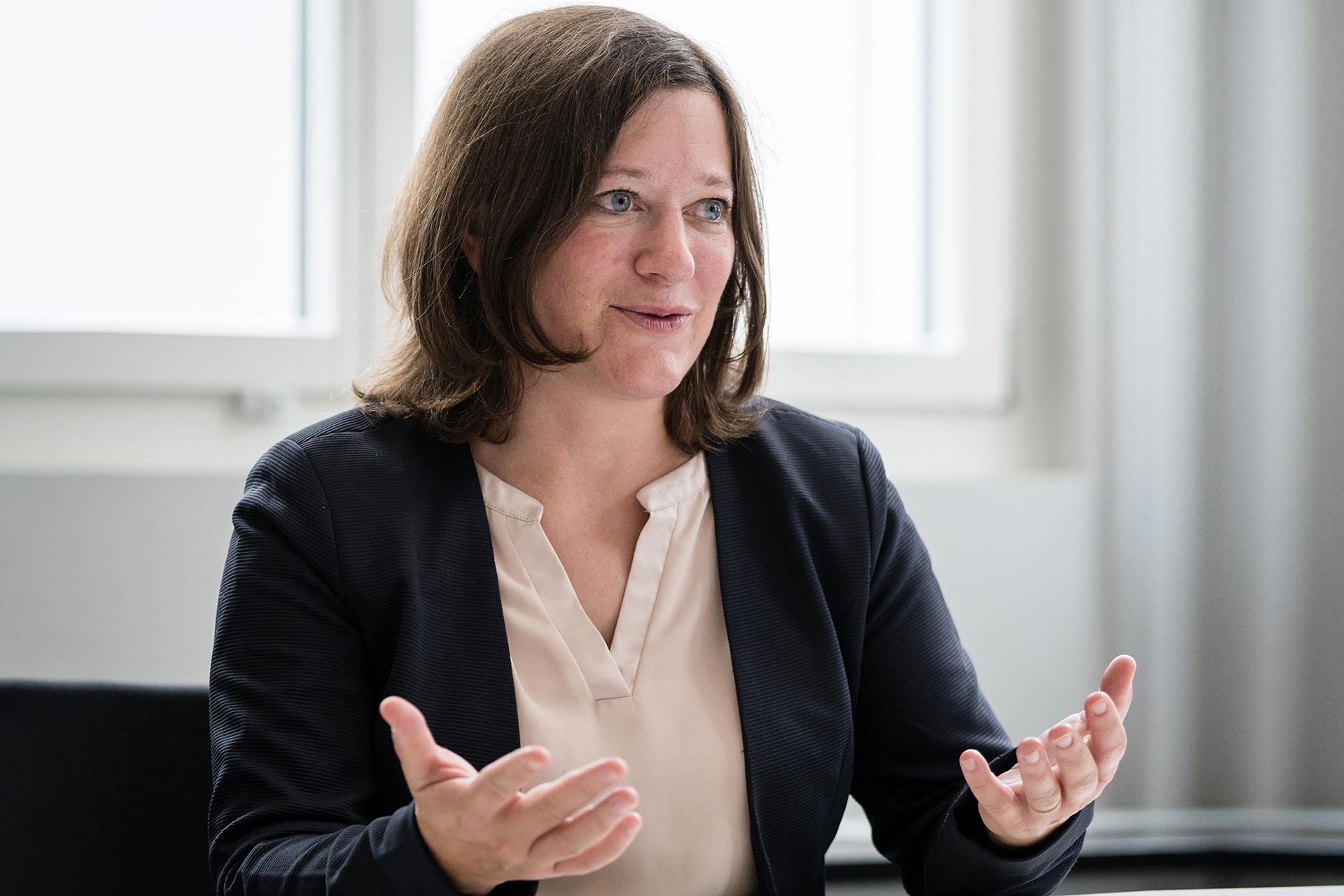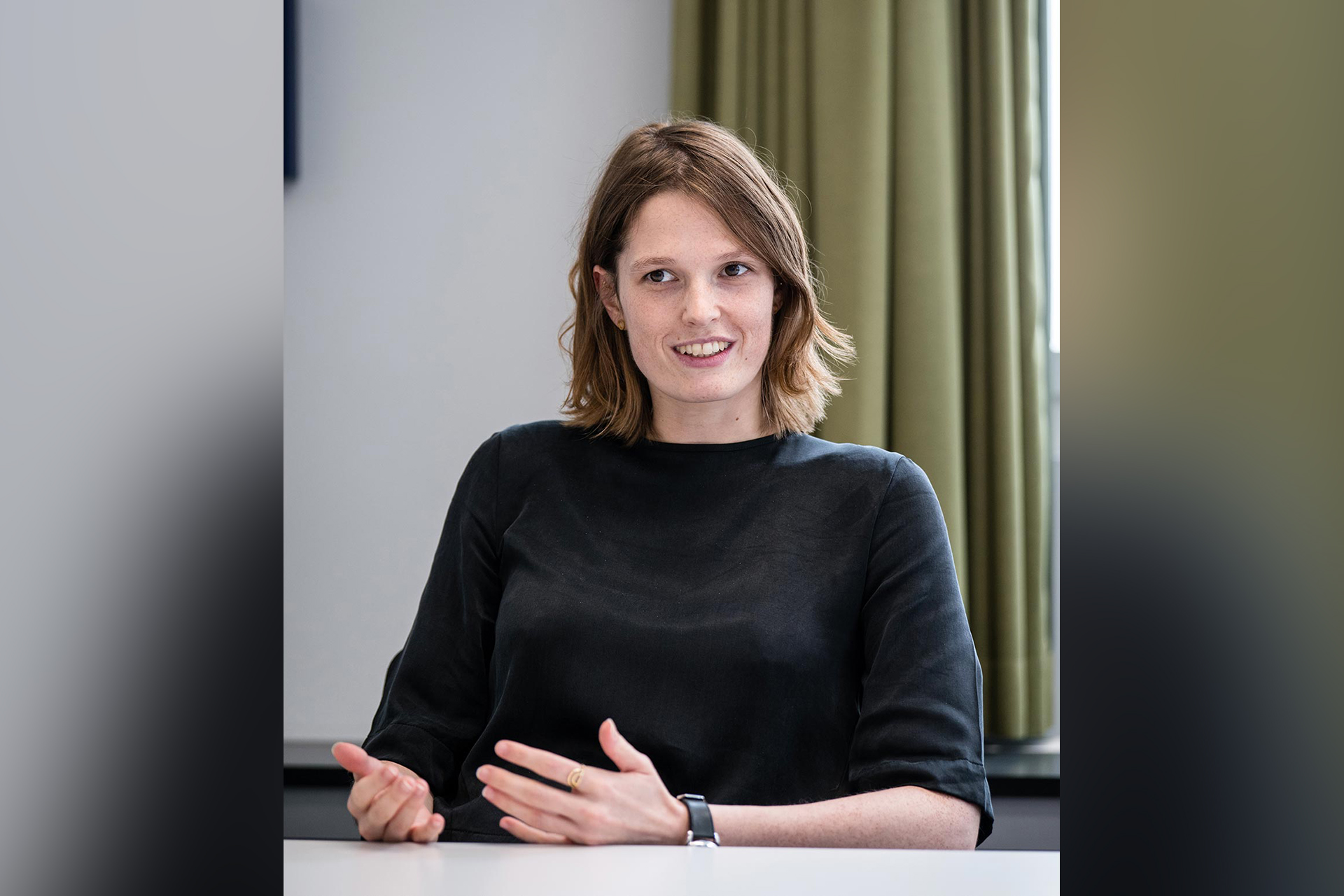The head of the working group on the Swissmedic side since the end of 2019, Dr Gabriela Zenhäusern, invited the partners of the patient and consumer organisations to Bern. She wanted to find out how the interaction might be further improved. Participants in the discussion were David Haerry (Co-Director, Positive Council Switzerland), Dr Jacqueline de Sá (ProRaris Alliance of Rare Diseases – Switzerland), Dr Daniel Tapernoux (SPO, the Swiss Patient Organisation) and Claudia Sutter (Swissmedic).
Probed
Patient and consumer organisations working group (PCO) A voice for patients
Eight years ago Swissmedic formed a working group together with patient and consumer organisations. A regular exchange of views was designed to improve the flow of information and patient safety, and to attach greater weight to the experiences of patients. Time to take stock.
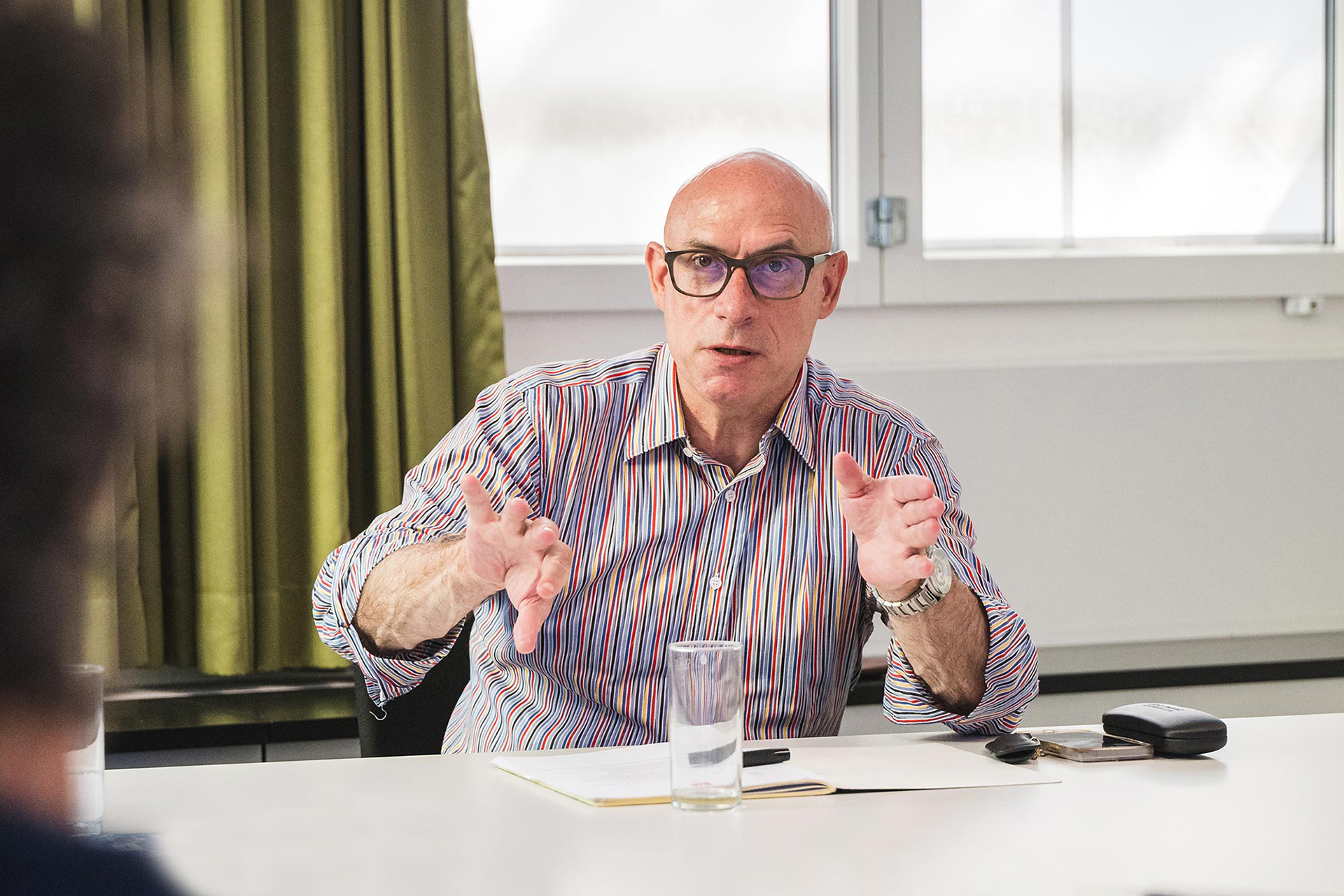
How did the cooperation with the patient and consumer organisations (PCOs) come about?
Gabriela Zenhäusern (GZ): "In 2014, Swissmedic realised how important it was for PCOs to be given a voice. Under the leadership of Cordula Landgraf, after the pilot phase the working group quickly established itself as a regular and important basis for exchanging views and obtaining a better understanding of everyone’s concerns."
David Haerry (DH): "Together with other patient organisations, we approached Swissmedic back in 2012 and explained what the European Medicines Agency (EMA) was doing at that time in terms of patient involvement. That drew the requisite attention to the issue."
"The aim is to integrate the PCO perspective into the whole life cycle of a therapeutic product. Then we’ll be better able to understand patient’s needs and thereby improve patient safety."
Gabriela Zenhäusern
What role does Swissmedic play in the working group now?
GZ: "During regular meetings, Swissmedic informs the PCOs about current issues, for example adverse reactions to vaccines and their recording and evaluation, or when a new process is introduced. We also try to introduce projects that we think are important and that will enable us to learn from patients. Our aim generally is to communicate concerns in a transparent and understandable manner. These strategies are designed to improve patient safety."
Claudia Sutter (CS): "Conveying information is key: The example of COVID vaccines in particular has shown how our systems operate, how we work and where the responsibilities lie. At the last two meetings of the working group, for example, we have invited a representative from the Federal Office of Public Health (FOPH)."
Jacqueline de Sá (JDS): "Together we can build bridges with patients by giving PCOs an insight into the various processes and listening to their experiences. At present, the meetings are fairly informal. But in the longer term we are keen to involve PCOs in the various stages of the authorisation process on a formal basis with clear guidelines – as is already practised by various foreign authorities."
According to what criteria are PCOs accepted?
GZ: "At the moment, it’s relatively uncomplicated: Anyone who satisfies our criteria as listed in the working group’s published Terms of Reference is accepted. Interested PCOs submit a nomination application. Swissmedic then decides whether the criteria are fulfilled. For example, it might clarify whether any conflicts of interest exist – e.g. in respect of funding."
"We all have the same concerns: fast reviews and rapid market access."
David Haerry
Do the same PCOs always take part?
GZ: "Yes, there are generally 12–15 participants."
Daniel Tapernoux (DT): "Whether an organisation is able to take part on a long-term basis also has to do with their resources. Most have to keep a tight rein on their budgets. It always boils down to how an organisation is positioned in terms of financing and personnel."
JDS: "We’ve now got to know each other in the group. We all have the same concerns, and the bilateral exchange of views among the PCOs is very valuable."
DH: "Our concerns include the fastest possible review of authorisation applications and the fastest possible market access. What we also feel is important is how Swissmedic deals with the reports of possible side-effects and what measures are taken."
What happens when it’s not possible to respond to the wishes of the PCOs?
GZ:"We’re basically guided by our jointly drafted work plan. There are no taboo subjects. But since we can only address concerns that fall within the jurisdiction of Swissmedic, we also see our role as that of a mediator."
DH: "Of course there are some projects that encounter stumbling blocks, mainly because the legal requirements aren’t met. That applies, for example, to the project on the review of package leaflets."
JDS: "We need to find a joint approach and a common denominator: The language and the perspective of authorities and PCOs are often completely different. A huge effort is needed on both sides."
"In this working group, we’re open to each other and learn from each other."
Jacqueline de Sá
Can we talk about a specific successful example?
DH: "For the package leaflets – and working with industry, incidentally – we’ve drawn up a process for improving the readability of the texts."
DT: "For the COVID vaccinations, patients were able for the first time ever to submit side-effect reports on a separate form. That was a request that came from the patient organisations – it’s both a milestone and a great step forward."
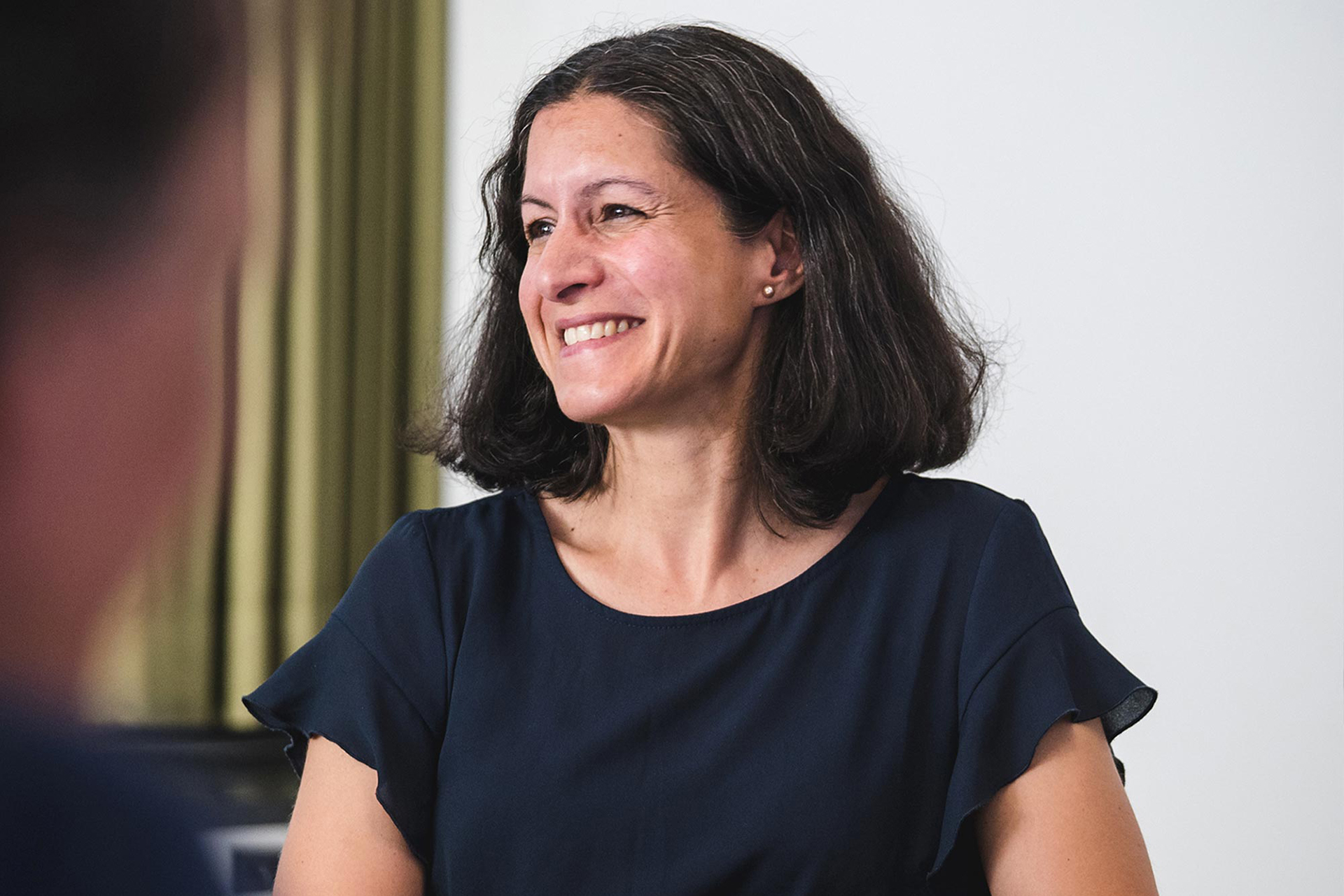
What specific projects lie ahead?
GZ: "Our goals are to build trust and involve patient organisations in various processes relating to therapeutic products. One possible option, for example, would be a project along the lines of the EMA, where patient’s views are considered right from the Scientific Advice stage – in other words, in the development phase of a therapeutic product."
"Other federal authorities could certainly take a leaf out of Swissmedic’s book."
Daniel Tapernoux
What is needed to launch a specific project?
GZ: "A willingness on the part of all those involved – the cooperation with PCOs is not set down in law. We have to acknowledge that a project has a specific benefit and a positive effect."
DH: "I remember when the EMA invited an MS patient to a meeting that was addressing tricky questions about additional benefit. This man explained how important personal mobility was to him – even if only because it allowed him to go to the toilet without outside help. In my view, this information from the patient’s side was taken into account in the authorisation decision. That shows how important it is to involve the sufferers."
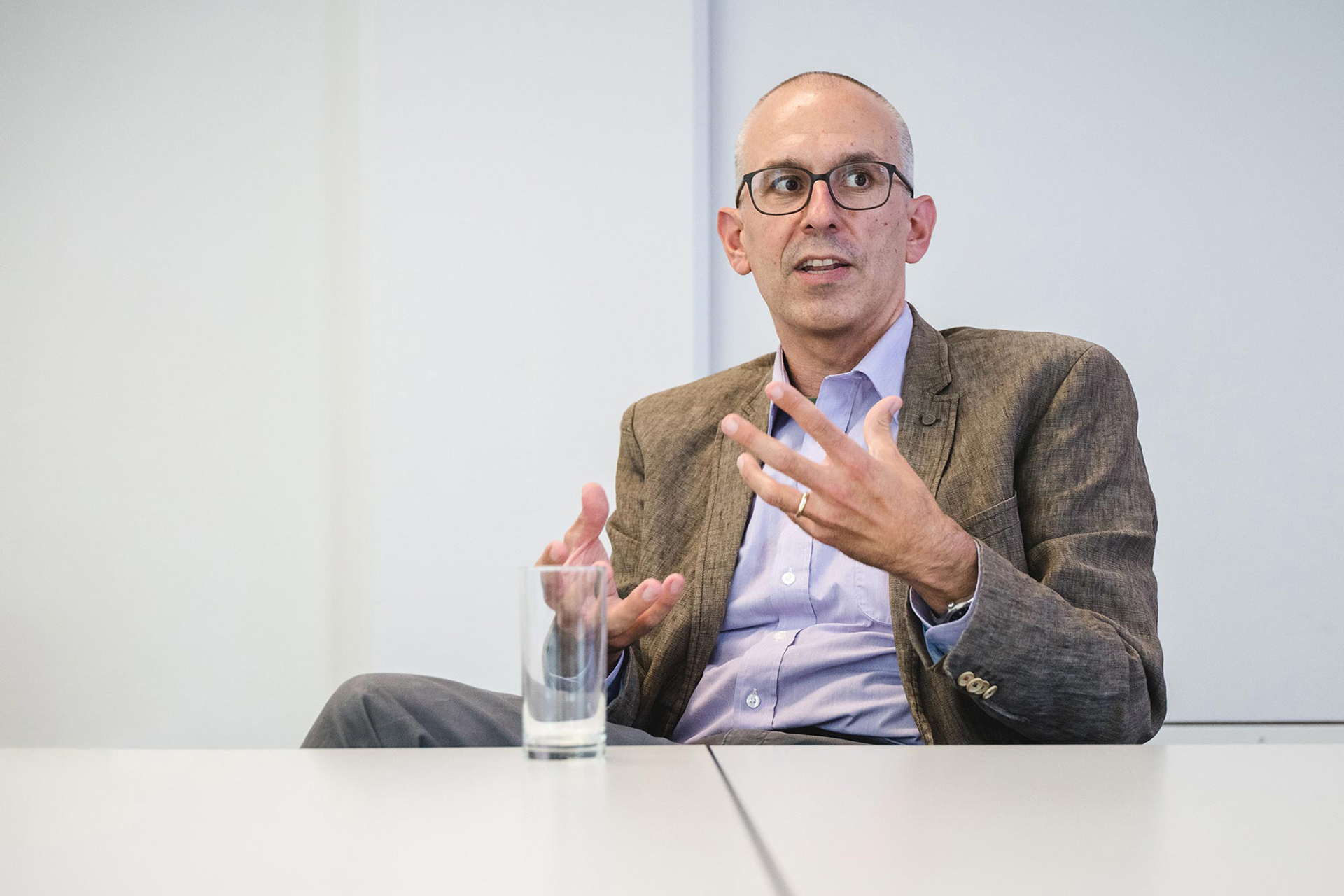
Have there also been PCOs that felt themselves to be disadvantaged?
GZ: "I don’t think so. Since Swissmedic’s remit is limited, it’s not possible to discuss exhaustively every concern of a PCO."
DT: "There have been discussions about the independence of organisations and about who represents what patient group. I myself see the role of PCO representatives in the working group as primarily being on the side of those affected by illness, who are able to draw on their experience. But representing patients who do not have a long-term illness is also important."
What about mutual concerns?
GZ: "We’d like the PCOs to be able to hold open and constructive discussions in the working group. We want to offer a platform that promotes mutual understanding."
CS: "The participants take part in the meetings with a great deal of commitment. I hope that this will continue to be the case in future."
DH: "I believe that Swissmedic should use the committee more for consultations – particularly when we want to change processes."
How do you see the future of this cooperation from the standpoint of the PCOs?
JDS: "We must keep at it: Although the existing group works very well, we still need to keep at this level and grow. It’s the things common to all the participants that make it work: we’re all pursuing the same goal – medicines of the highest quality."
DT: "We would like the cooperation to extend beyond Swissmedic. Other federal authorities could certainly take a leaf out of Swissmedic’s book."
DH: "I see great potential in the technical development of combination products, and I think a lot will happen here in the near future. Then there’ll also be a lot of potential for involving patients."
